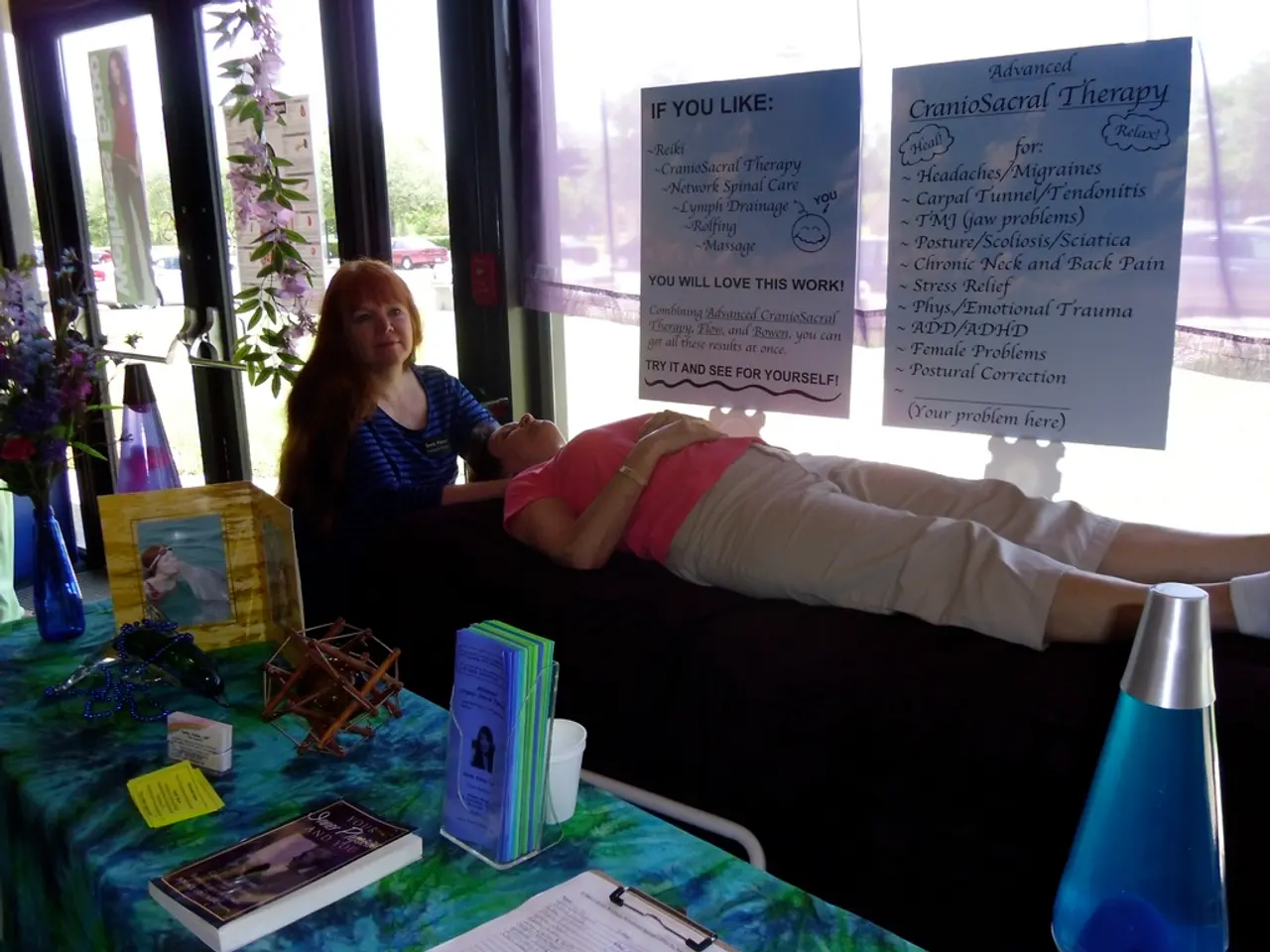Menstrual Discomfort Syndrome (PMS): Definition, Symptoms, and Remedies
Premenstrual Syndrome (PMS) is a common condition affecting many women of reproductive age, causing a diverse range of physical and psychological symptoms before menstruation. Some conditions, such as endometriosis and polycystic ovary syndrome, can exacerbate PMS symptoms, making them severe.
Effective treatments for managing PMS symptoms include a combination of lifestyle changes, medications, and complementary therapies.
## Medications
Selective Serotonin Reuptake Inhibitors (SSRIs), such as Prozac or Zoloft, are antidepressants that have been shown to be highly effective in reducing mood-related symptoms of PMS. Oral contraceptives can help regulate hormonal fluctuations, thereby reducing symptoms. Over-the-counter pain relievers like ibuprofen can provide relief from cramps and muscle pain.
## Lifestyle Changes
Regular exercise, reducing caffeine, salt, and sugar intake, and increasing protein and vitamin consumption can help alleviate bloating, food cravings, and other PMS symptoms. Supplements such as magnesium, calcium, and vitamin B6 may be beneficial for headaches and fatigue.
## Complementary Therapies
Therapy and emotional support, Ayurvedic remedies, acupuncture, and yoga can help manage emotional symptoms and physical symptoms like cramps and bloating.
## When to Seek Help
If PMS symptoms significantly interfere with daily life, it is important to seek professional help. A symptom diary can assist healthcare providers in developing a personalized treatment plan. Only 8-20% of premenstrual females meet the clinical criteria for a diagnosis of PMS.
Taking hormonal contraception can give rise to PMS-like symptoms because these drugs change the levels of hormones in the body. People may want to consider seeing a doctor if their PMS symptoms do not improve after trying over-the-counter medications, home remedies, or lifestyle changes.
The exact cause of PMS remains unknown, but natural fluctuations in hormone levels, especially estrogen and progesterone, are likely responsible. Gentle exercise can help reduce physical PMS symptoms, while relaxation techniques can help manage emotional imbalances.
Severe PMS can be treated with hormonal birth control pills, which affect the levels of estrogen and progesterone in the body. However, severe or debilitating PMS symptoms are not common and may indicate the presence of an underlying health condition.
In conclusion, managing PMS symptoms requires a comprehensive approach, combining medications, lifestyle changes, and complementary therapies tailored to each individual's needs. Keeping a symptom diary and seeking professional help when necessary can ensure effective management and improvement of quality of life.
- Selective Serotonin Reuptake Inhibitors (SSRIs) like Prozac or Zoloft, which are antidepressants, can significantly diminish the mood-related symptoms of Premenstrual Syndrome (PMS).
- Oral contraceptives are useful in controlling hormonal fluctuations, potentially reducing PMS symptoms for some women.
- Over-the-counter pain relievers, such as ibuprofen, offer relief from period-related cramps and muscle pain.
- To alleviate bloating, food cravings, and other PMS symptoms, regular exercise, reduced caffeine, salt, and sugar intake, and increased protein and vitamin consumption are recommended.
- Magnesium, calcium, and vitamin B6 supplements could be advantageous for managing headaches and fatigue related to PMS.
- Therapy, emotional support, Ayurvedic remedies, acupuncture, and yoga can be valuable complementary therapies for managing both emotional symptoms and physical symptoms like cramps and bloating.
- If PMS symptoms have a significant impact on daily life, it is crucial to consult a healthcare provider for a personalized treatment plan.
- People may want to consult a doctor if their PMS symptoms persist despite trying over-the-counter medications, home remedies, or lifestyle changes.
- Gentle exercise and relaxation techniques can provide relief from physical PMS symptoms and emotional imbalances, respectively.
- Severe or debilitating PMS symptoms could indicate an underlying health condition, so it is essential to seek professional help if symptoms do not improve with other treatments. Additionally, taking hormonal contraception may cause PMS-like symptoms because it alters the levels of hormones in the body.




